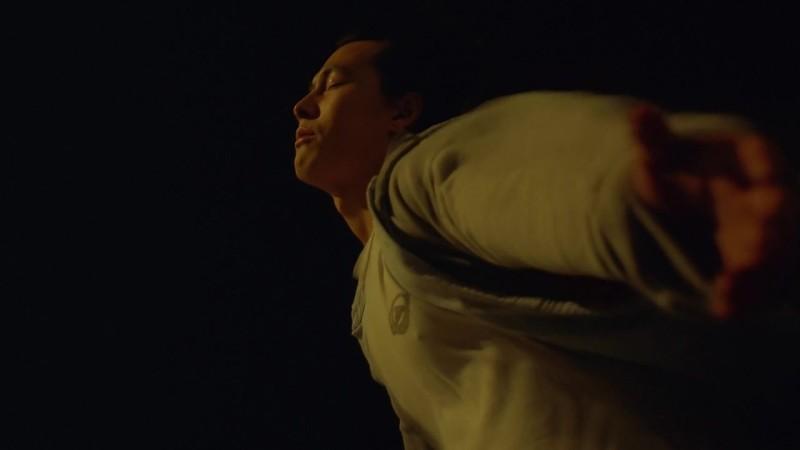
If at any given time prior to the new millenium you told me I’d be following my way down a rabbit hole of obscure Asian films, I would’ve been positively thrilled. It’s a reasonable enough trajectory considering by the late 90s I had grown weary of being a targeted consumer in a market for the same films by the same actors. Hence why you’d frequently see me in the Asian cinema section of the video store in the late 90s.
Well into the new millennium my interests eventually landed me in a book store near Herald Square where I eventually became the owner of a number of Korean DVD imports, many of which were Region 3-locked and wouldn’t have been watchable were it not for my player’s All-Region functionality. Among the load I bought from that store upon my visits back then included a DVD copy of Kim Sung-su’s 1997 graphic novel adaptation, Beat, a film that propelled lead actor Jung Woo-sung into local stardom at the time, and for that matter, most certainly put him on my radar.
The film wasn’t a conventional action thriller either – not the kind that my own brain adapted to in the years since the Hong Kong crossover of the 90s that birthed a restart of Jackie Chan’s perpetuity and fame in the West. Nevertheless, it was one of the earlier Korean cinema titles of my own lifetime, well into the period when I was an active visitor and customer to a lot of niche DVD retail sites like HKFlix, and like it did with Old Boy and Fighter In The Wind, Beat proved to be a compelling and masterfully done piece of work with rawness, and stimulating energy and story elements.
The basic meat-and-potatoes plot of the film deals centrally with the diaspora of troubled youth and harrowing self-discovery among four characters, and the debts we incur in life for our actions. Min (Jung Woo-sung) and Tae-soo (Yo Oh-seong) are the closest they have to each other as brothers, a bond that will inevitably be tested once Min transfers to a new school. Once there, Min finds friendship with troublesome Whan (Im Chang-jung), and Ro-mi (Ko So-young), an affluent school student whose beauty and unflappable demeanor gets shaken to its core when tragedy and suicide strike her close circle amid the pressures of passing exams.
Just as Min is faced with his own rage and anger against a system and society both he and Whan are ill-prepared for, and a best friend who’s all but sacrificed himself for a criminal underworld he becomes beholden to, when it comes to dealing with these, it’s nothing compared to the torment of caring for Ro-mi in the wake of her own deteriorating personal life. It all further sends our characters on a collision course with reality, against the very ideals they’ve set in their own minds about love, life, success, and loyalty, all of which come to ahead for Min when a gangland betrayal leaves Tae-soo’s life hanging in the balance.
Much like Versus and Drive, Beat is another film I hold near and dear. I’ve watched this film and sometimes imagined ways in which they could have shot the action – nearly all of which are done in eight frames – and while part of me wishes there was a version of this film that existed with a higher frame rate for the fight scenes, it becomes even clearer how those scenes contribute to the rest of the story as things unfold. In the course of things, Beat is a tried and true reminder of how no matter the chaos, ugliness and uncertainty of life, the toxicity of some of our connections and relationships, in the end, it’s about how we live our lives and what we do for whom we owe, including ourselves.
Beat is a tough, artful, gritty and oftentimes unforgiving action drama, and it’s as real as it gets for anyone who’s taken a beating or given one, anyone who’s fallen in love, and anyone’s who’s had anything remotely close to what Min and Tae-soo have, with a slick, albeit pricey motorcycle as a key part of the film’s narrative nexus. The action sequences come from genre favorite Jung Doo-hung, whose name is one that guarantees the action in any project he’s involved in will be a solid offering.
The soundtrack is a mix of high energy rock, dance and hip-hop, with the recurring vocal stylings of singer Kim Tae-euk bookending the film’s montage finish with the song, “Pureness In The Shell” – a song that’s stuck with me for more than fifteen years since I bought the DVD from the currently shuttered 32nd street and Herald Square location of Koryo Books. It’s also a song you won’t hear in Tubi’s release for some reason – it could be a rights issue, but don’t take my word for it though; To hear the song though, you’re welcome to look it up online (preferably one that doesn’t spoil the end of the movie if you decide to search on YouTube).
What I do recommend though, is clicking here and checking the film out for your own enjoyment. It’s truly worth the watch if you’re in the market for gripping, compelling Asian niche titles, and also feel free to click here for more Jung Woo-sung coverage. A look at the rare trailer just below too. Goodness gracious…
Ramona Lee Soo-jun and Dee Yoon contributed to this report.
